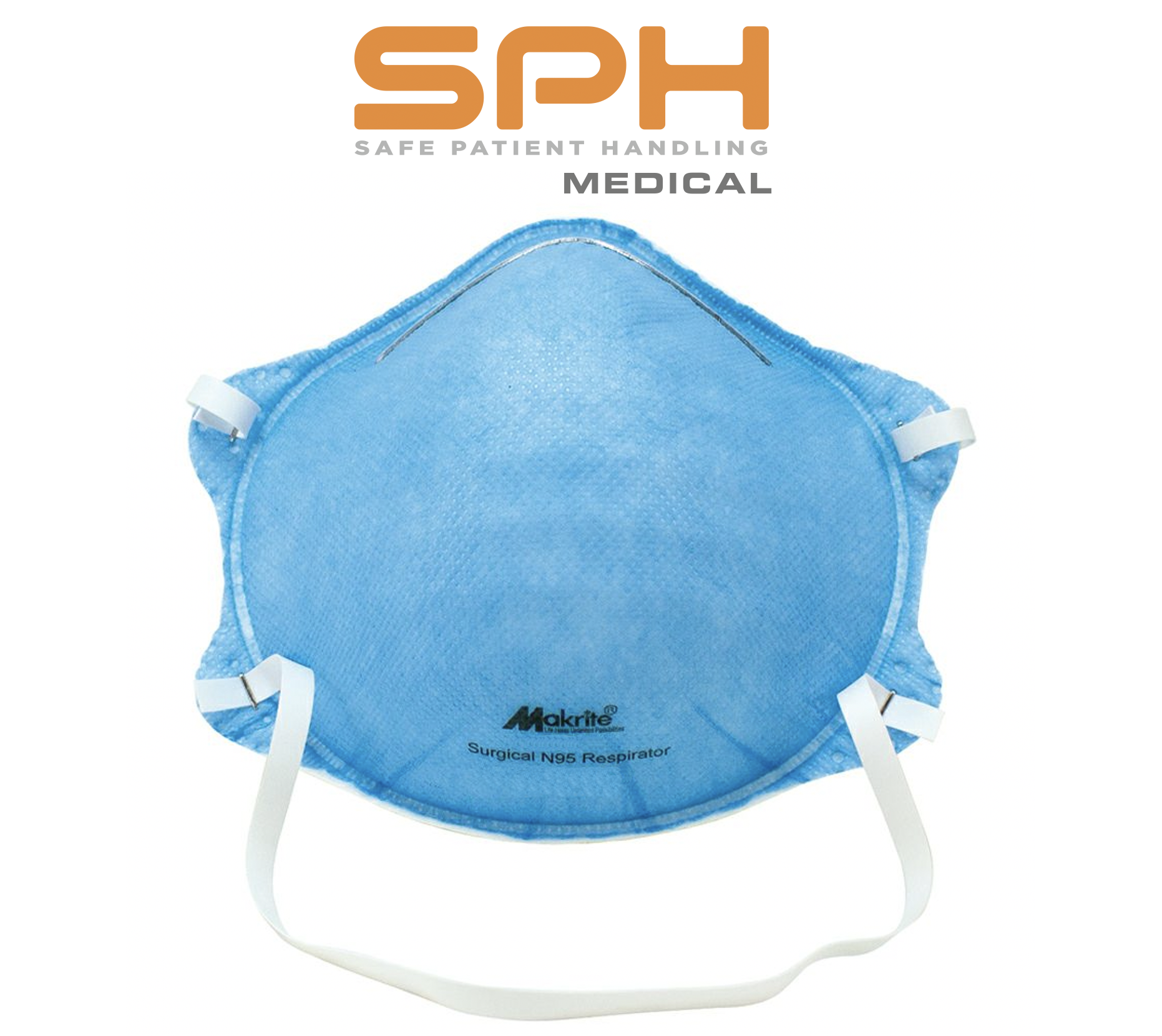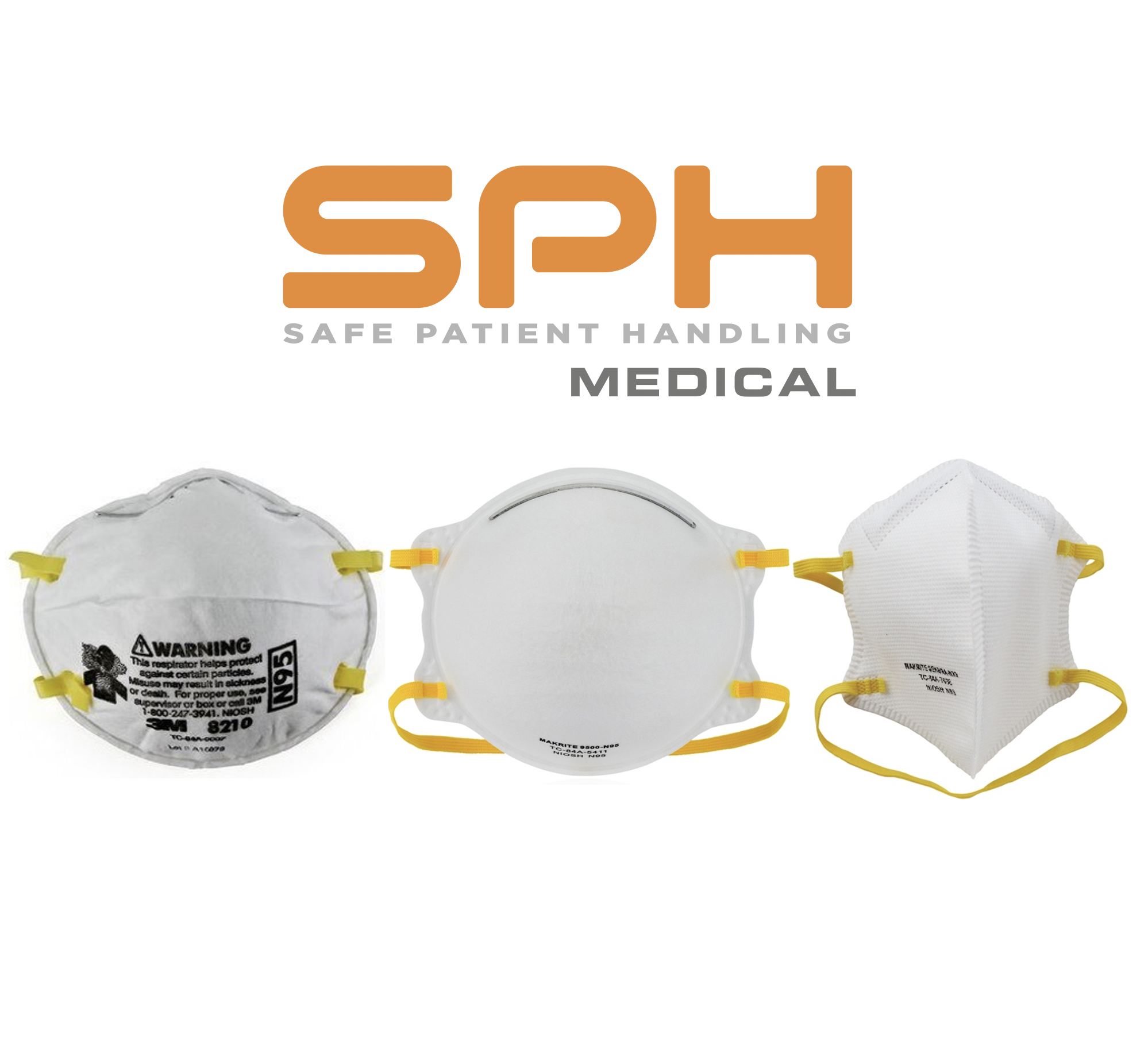The world has been in transition since the spread of the Coronavirus, also known as Covid-19. The year 2020 marked a shift in societal standards, behavior, interactions, and almost a total disruption in how the average person views infection prevention. Less than two years later, we are still being reminded by the CDC and healthcare leaders that mask use contributes to individual personal safety and offers significant defense against the spread of the virus. With the rise in Covid-19 delta variant infections and deaths resulting from the virus, the simple recommendation to wear a face mask has now become a recurring theme. Additionally the need for healthcare facilities to use disposable N95 respirators surgical rated masks has continued to remain steady. All of this demand has lured many entrepreneurs and start ups into the business of selling masks.
Healthcare facilities like to work with suppliers that they trust and tend to work with those companies that have a history of performance. Understanding that patient care is their number one priority they choose their business partners carefully.
Rather than working with third party brokers and fly-by-night operations, the healthcare sector requires a legitimate source to establish a direct relationship for the supply of NIOSH Certified N95 of masks.
SPH Medical lifts the burden of determining legitimacy as they are an Authorized Distributor for Makrite. Makrite is a global leader in mask manufacturing with more than 30 years of experience. SPH Medical receives product directly from Makrite delivering multiple N95 Mask options to hospitals, industrial customers, and the rest of the world.
The increased use of N95 Masks in the healthcare sector and by the general public has increased the demand for improvements in comfort, fit, and performance. Makrite is on the cutting edge of this trend and is actively working on research and development of new and improved models. Makrite is listening to customers and getting direct feedback to continually improve their products.
The Future of N95s
The reliance on N95s for protection from airborne and aerosolized particle virus transmissions has gone up through Covid-19 waves.
Before the norm of wearing face masks, often only medical professionals would typically use a surgical rated N95 respirator.
Today, with the slow impact of vaccines, the surgical rated N95 respirators are a tool for personal security against infection. In the future we see a variety of new Surgical rated N95 Respirators in the product development pipeline that will be available for Healthcare customers and the general public.
Unfortunately, the massive spike in demand for protection from the virus resulted in a shortage of masks throughout the world. Manufacturers were caught off guard by this new global demand. Raw material shortages and supply chain issues were additional factors that contributed to massive price increases for this essential personal protective equipment. With the manufacturing and supply of NIOSH certified N95 Masks hanging delicately in the balance, the next big question could be: What is the future of N95s?
Despite safety in mind, comfort and effectiveness have surfaced as other equally important issues with face masks.
Having one on all day in a busy environment could keep you safe, but can we all bear it? Day by day, people loosen their needs for safety over the whelming desire for comfort and a break from everything.
Effectiveness has also come up in different ways. Materials used in the manufacture of various mask models could determine their effectiveness.
A mask’s design and layering could also determine its ideal use (some are too thin to capture virus-sized particles, while others, such as the N95s, are well-specialized).
Surgical Rating for an N95 Respirators
Medical professionals are among the frontline caregivers/responders. While various masks could serve optimal purposes, Makrite models of N95s have proven trustworthy and effective.
Every frontline responder deserves high-level protection from airborne and aerosolized particle virus transmissions.
Therefore, different mask types acquire certification standards for their uses; every country, with its own (the USA’s being N, thus the N95 Masks).
An N95’s surgical rating establishes a standard for its use among healthcare professionals and other frontline caregivers.
New Market Trends
The medical industry has undergone a paradigm shift in the new trends resulting from the Covid-19 virus. Before its spread in late 2019 and throughout 2020, there was no insistence or global demand for personal protective equipment, otherwise known as PPE.
The changes in this climate of virus prevention have led to unimaginable changes.
While many businesses have closed down, others have reaped some benefits from the looming fears and the societal inclination towards extensive protection and enhancements on safety measures.
The PPE industry, for instance, has witnessed an increased dependence on PPE for protection from infection.
One of the notable trends is the daily and global use of masks for non-medical use. Considering different mask types, the demand for more effective and comfortable models shoots higher by the day.
Along with non-medical use is the increased sensitivity of the medical environment; this has made masks necessary and mandatory at all times in such environments and when providing services.
The Makrite model 9500-N95 Respirator is a step up to surgical masks, providing comfort and efficiency. It leads the market in the infusion of NIOSH N95 Mask technology for reliable protection.
Other models increasing in popularity are the comfort fit Makrite Sekura-N95. The Makrite Sekura-N95 was recently resubmitted to NIOSH for surgical approval and received approval under the new name Sekura-X.
The Makrite model 9500 N95 Respirators
The Makrite N95 Mask is certified and meets the N95 NIOSH standards.
Makrite mask users will enjoy protection from solid particles, among other substances, which may include but are not limited to iron ore, coal, minerals, and flour; their design and fabric also make them comfortable and effective in protection from Covid-19 airborne transmissions.
Today, the Makrite 9500-N95 and Makrite Sekura-N95 are industry leaders in the world of NIOSH certified N95 Masks.
Makrite’s Industry Experience
Makrite’s time in the industry has seen the development of a broad portfolio of protective masks that it delivers to countries across the globe.
The demand for more of the Makrite N95 Mask through the two years of Covid-19 infections and spread has resulted in improved models suitable for medical environments and for general, non-medical uses.
The Importance of an Authorized Distributor Like SPH Medical
The demand for personal protective equipment became a reality as the Covid-19 pandemic began and and this disease continues to impact the way we go about our daily lives. N95 respirators are crucial for maximum personal protection.
Acquiring them for a healthcare institution or large numbers of individuals who require protection demands trust and authenticity.
Healthcare products that provide protection such as N95 Masks and Nitrile Exam Gloves are critical for all healthcare workers. Therefore, authorized distributors of healthcare products, such as these, and including Chemo Tested Nitrile Exam Gloves, must have a history of performance. SPH Medical has an unmatched track record of supplying hospitals and healthcare systems with essential Safe Patient Handling solutions and safety supplies. SPH Medical is an authorized distributor of N95 respirators and Nitrile Exam Gloves.
The value of working with SPH Medical is the direct access to distribution of masks and essential supplies without the need for a third party. Thirty years of manufacturing experience puts Makrite ahead of other manufacturers with demonstrated quality and reliability.


